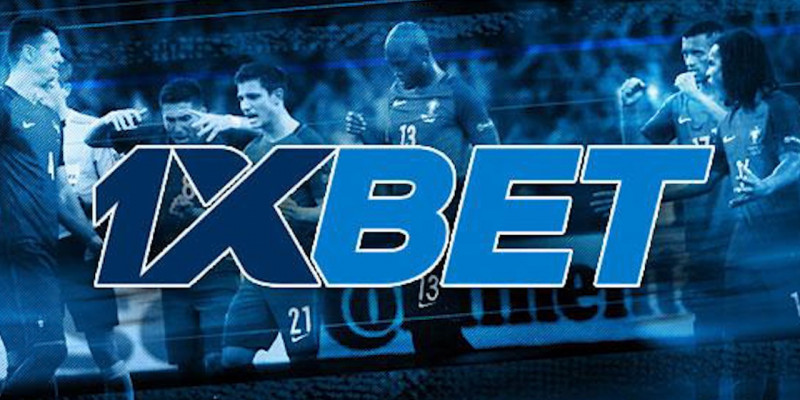
Sports betting has evolved from casual wagers among friends into a sophisticated market where analytics, timing and discipline determine success. If you are exploring mobile access and apps, consider options such as sport bet 1xbet ios to stay connected — but remember that tools are only useful when combined with sound strategy.
This article outlines practical approaches to sport bet that both new and experienced bettors can use to improve decision-making. We’ll cover bankroll management, market selection, understanding odds, value identification, data use, in-play tactics, common psychological pitfalls and responsible gambling practices.
Bankroll management is the foundation of sustainable betting. Before you place a single wager, decide how much you can afford to lose and treat this amount as your working bankroll. Many professionals recommend staking small, fixed percentages of the bankroll per bet — commonly 1–3% — so that losing streaks do not deplete funds and winning streaks compound returns. Use a staking plan such as flat stakes for simplicity, or employ proportional staking (Kelly Criterion) when you can estimate edge and probability accurately. Whatever the method, discipline in applying it consistently separates hobbyists from long-term players.
Market selection matters. Not every market offers equal opportunity. Major leagues and popular events draw sharp attention from bettors and bookmakers, which often compresses margins and reduces exploitable value. Niche leagues, lower divisions, and less-followed sports can present softer lines where informed research pays off. Focus on markets where you can develop expertise — be it certain football leagues, tennis surfaces, or basketball matchups. Specialization lets you recognize mispriced odds that casual bettors overlook.
Understanding odds and probability is essential. Decimal, fractional and American formats represent the same underlying chances and potential returns. Convert odds to implied probabilities to compare your assessed chance of an outcome with the bookmaker’s implied chance. Value exists when your estimated probability exceeds the implied probability of the odds after accounting for the bookmaker’s margin. For example, if you assess a 40% chance of an event and the market implies 30%, a bet may have positive expected value (EV).

Data and analytics increasingly shape modern sport bet strategies. Use reliable sources for historical results, player statistics, injury reports and advanced metrics. Build models that incorporate situational factors — home/away performance, recent form, rest days, head-to-head trends, and weather when relevant. Simple models, like Poisson for goal-based sports or Elo ratings for comparative strength, can outperform intuition if well-calibrated. Combine quantitative models with qualitative insights from scouting and match reports for a balanced edge.
In-play, or live betting, offers dynamic opportunities but requires speed and discipline. Odds fluctuate as games progress, reflecting new information about momentum, injuries, or tactical changes. Successful live bettors have clear rules: identify scenarios where in-play value historically appears (e.g., after a surprising early goal), set maximum reaction times, and avoid emotional chasing when outcomes diverge from pre-game expectations. Use real-time stats and streaming to make informed decisions rather than relying solely on changing lines.
Line shopping — comparing odds across multiple bookmakers — is a simple yet powerful practice. Small differences in odds translate to meaningful gains over many bets. Keep accounts with several reputable platforms and use odds-comparison tools to ensure you consistently get the best available price. Combining line shopping with smart staking increases long-term ROI.
Common pitfalls include confirmation bias, overconfidence, and chasing losses. Confirmation bias leads bettors to give extra weight to information that supports their preconceptions while ignoring contradictory data. To combat this, maintain a betting journal that records reasons for each wager, the stake, and the outcome. Reviewing past bets helps identify patterns of error and refine your approach. Set limits on the number of bets per day and enforce cooldown periods after losing sequences to prevent emotional decisions.
Risk management extends beyond staking. Understand the specific rules of markets you bet on — settlement policies, liability limits, and cancellation rules — as these affect expected outcomes. Beware of correlated parlays that amplify risk; while parlays can offer attractive headline payouts, they generally produce negative EV compared to the same money placed on single bets with value. Use parlays sparingly and only when individual legs independently show value.

Psychology plays a major role. Betting outcomes have high variance; even skilled bettors will face losing streaks. Cultivate patience and a long-term perspective. Celebrate process over short-term results: if your model or criteria for value remain sound, periodic losses do not mean your strategy is flawed. Conversely, if short-term success tempts you to increase stakes beyond your plan, resist the urge and stick to the bankroll rules you established.
Legal and ethical considerations should guide every bettor. Ensure online platforms you use are licensed and regulated in your jurisdiction. Protect personal and financial data with strong passwords and two-factor authentication where available. Understand age restrictions and never facilitate gambling for minors. If betting ever stops being an enjoyable, controlled activity, seek support from responsible gambling organizations.
Measuring performance helps refine your approach. Track ROI, strike rate, average odds and profit/loss by market type. Analyze which strategies and sports yield the best returns relative to effort. Allocate more of your analytic resources to areas with the highest marginal benefit. Regular review cycles — weekly for operational checks and quarterly for strategic assessment — keep your approach adaptive to changing markets.
Technology is both an enabler and a distraction. Tools like odds aggregators, alert systems and basic automation speed up line shopping and bet execution. However, overreliance on automated signals without understanding underlying rationale increases risk. Aim to use technology to enhance analytic capacity, not replace critical judgment.
In conclusion, successful sport bet practice combines disciplined bankroll management, focused market selection, rigorous data analysis and psychological control. Treat betting as a long-term endeavor where process, not luck, defines outcomes. Use available tools responsibly, compare lines across platforms, and commit to continuous learning. With patience and structure, bettors can tilt the odds slightly in their favor and enjoy a more sustainable, thoughtful approach to wagering.
